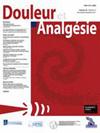化疗引起的周围神经病变和新的治疗靶点:药物重新定位的临床前数据
Q4 Medicine
引用次数: 0
摘要
化疗引起的周围神经病变(CIPN)是神经毒性抗癌药物的常见不良反应。它的患病率接近60%,但根据抗癌药物和剂量的不同,它的差异很大。CIPN仍然是一个问题和长期的不良影响,与患者生活质量的下降有关。此外,不推荐预防性治疗,只有度洛西汀被中度推荐用于CIPN的治疗(美国临床肿瘤学会[ASCO]和欧洲肿瘤医学学会[ESMO])。因此,肿瘤学家必须减少或停止神经毒性抗癌方案,以限制CIPN的严重程度,这反过来可能对疾病控制和无进展生存产生负面的肿瘤影响。因此,需要改进神经病变的药理学管理。根据逆向转化研究策略,我们认为这可以通过提出创新策略,改进当前镇痛药物的使用或药物重新定位来实现。本文将根据CIPN动物模型的研究,介绍两种药物重新定位策略——利鲁唑和多奈哌齐在CIPN管理中的应用。本文章由计算机程序翻译,如有差异,请以英文原文为准。
Chemotherapy-Induced Peripheral Neuropathy and New Therapeutic Targets: Preclinical Data of Drug Repositioning
Chemotherapy-induced peripheral neuropathy (CIPN) is a common adverse effect of neurotoxic anticancer drugs. Its prevalence is close to 60%, but it can vary considerably depending on the anticancer drugs and doses administered. CIPN remains a problematic and long-lasting adverse effect associated with a decline of patient’s quality of life. Moreover, no preventive treatment can be recommended and only duloxetine has a moderate recommendation in the management of CIPN (American Society of Clinical Oncology [ASCO] and the European Society for Medical Oncology [ESMO]). Consequently, oncologists must decrease or stop neurotoxic anticancer regimen to limit CIPN severity, which may in turn have a negative oncological impact on disease control and progression-free survival. Thus, improvement in pharmacological neuropathy management is needed. We consider according to a reverse translational research strategy that this can be achieved either by proposing innovative strategies, improving the use of current analgesic drugs, or drug repositioning. In this article, two strategies of drug repositioning, riluzole and donepezil, will be presenting in the management of CIPN based on the studies in animal models of CIPN.
求助全文
通过发布文献求助,成功后即可免费获取论文全文。
去求助
来源期刊

Douleur Et Analgesie
医学-临床神经学
CiteScore
0.30
自引率
0.00%
发文量
17
审稿时长
>12 weeks
期刊介绍:
Douleur et Analgésie, première revue internationale francophone consacrée à la douleur, a été créée en 1988. De par la qualité scientifique et l’indépendance de ses publications, ce trimestriel a reçu d’emblée un accueil favorable auprès des chercheurs et cliniciens spécialisés dans le domaine. Á l’occasion de la reprise de la revue en 2006 par les Éditions Springer, le comité éditorial a souhaité s’ouvrir davantage à la francophonie, y compris nord américaine, pour mieux partager les connaissances et renforcer la valeur scientifique de la revue.
 求助内容:
求助内容: 应助结果提醒方式:
应助结果提醒方式:


